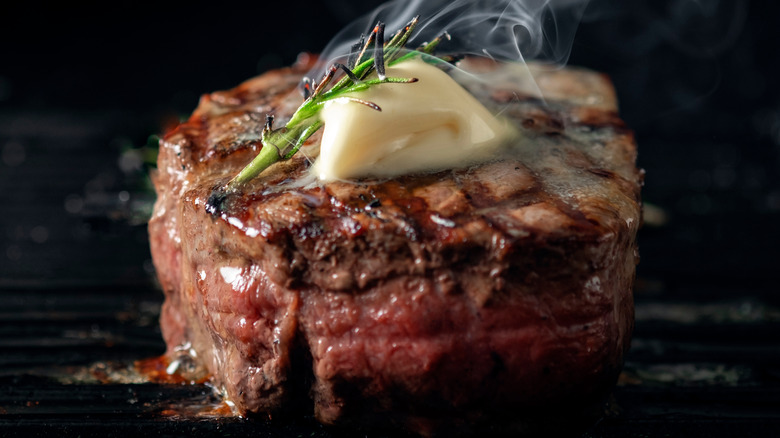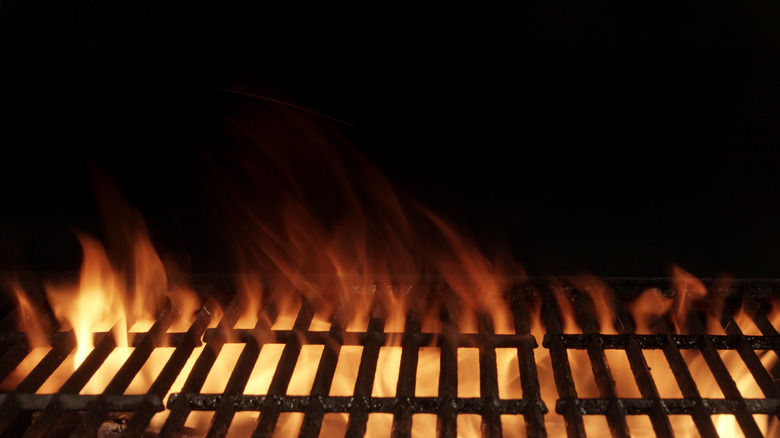The Real Reason Grilled Food Tastes So Good
With the positivity directed toward grilling just about anything these days, it is obvious the flavor is unbeatable. The taste of food changes when heat is applied, according to Napoleon. Take vegetables, for example: A raw pepper doesn't taste nearly as sweet as a roasted, caramelized, or baked one. The same concept goes for meat. That savory flavor comes out once it hits the grill.
The proteins in meat are broken down into amino acids, which produce that flavor you can only get in a grilled setting. But don't forget to marinate your meats in your favorite blend of spices: That not only adds to the cooking process, but the grilling technique brings out the flavor even more (via Napoleon).
The high, direct heat that comes from a grill releases flavors that you can't get when you bake, boil, or use a skillet, per the Wisconsin State Journal. This only happens because of a unique chemical reaction that brings the flavor profile so many people crave.
The Maillard reaction
You may have thought it was your pristine cooking skills that was causing the grilled crust atop your meats, but it's actually all about the science, according to The Spruce Eats. It's called the Maillard reaction, and it occurs when the proteins in meat are heated to above 300 degrees Fahrenheit.
It wasn't until the 20th century that this culinary marvel was discovered. Chemist Louis-Camille Maillard noted the similarities of the caramelization process to that of grilling meat. Much like grilled veggies, the high and dry heat of a grill triggered the same reactions in a perfectly sliced steak or pork chop. Have you ever wondered what gave those distinct grill marks? That's right, it's the Maillard reaction working its magic.
You can't just depend on the grill, though, as the Wisconsin State Journal says. To be sure your culinary skills and science match up in the battle of a perfected steak, be sure to pat your meat dry and season properly. A wet piece of meat will produce steam, which will not give you the Maillard reaction, as The Spruce Eats says.

